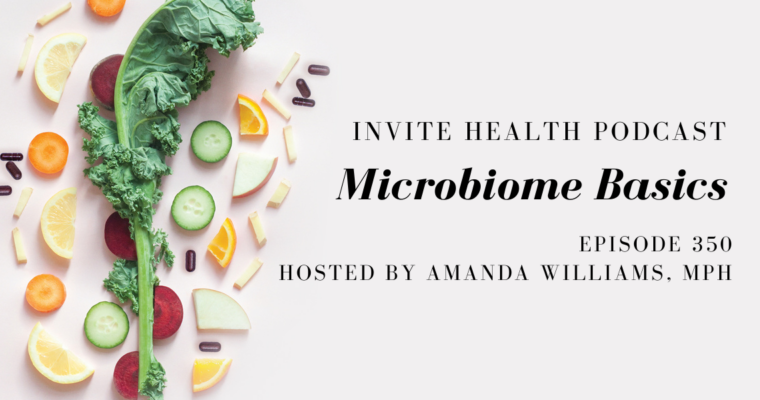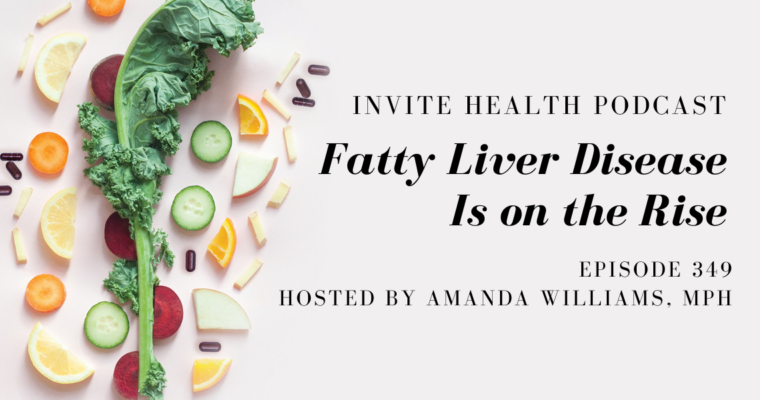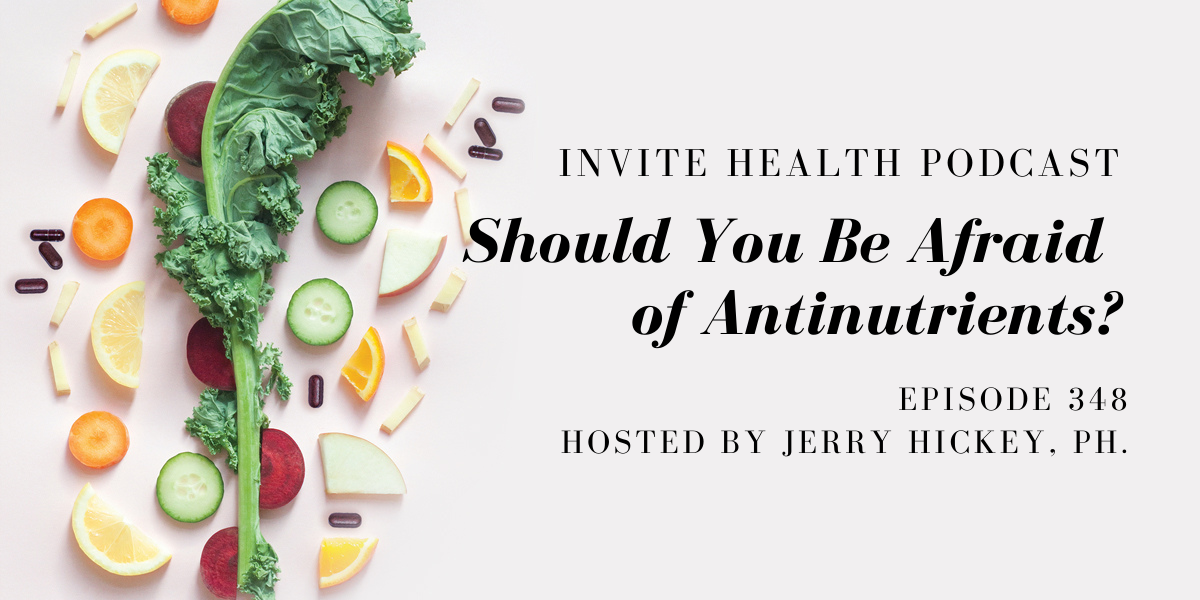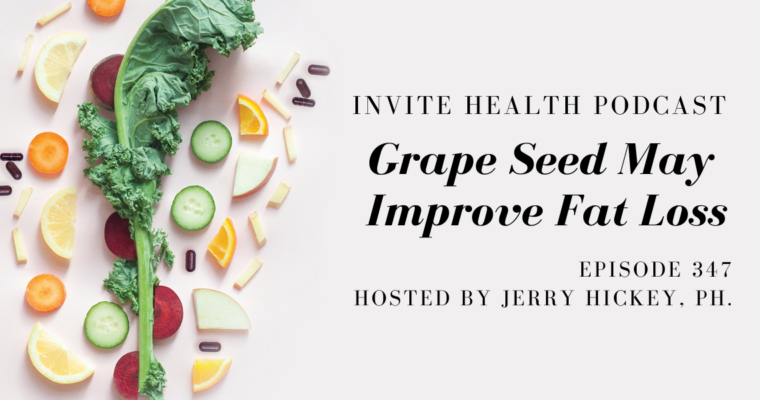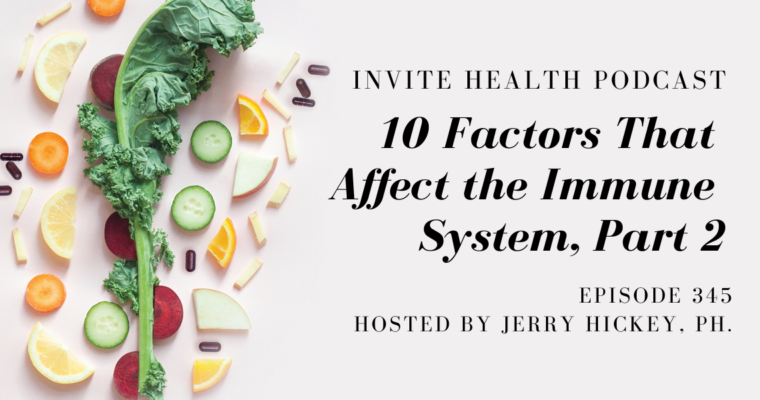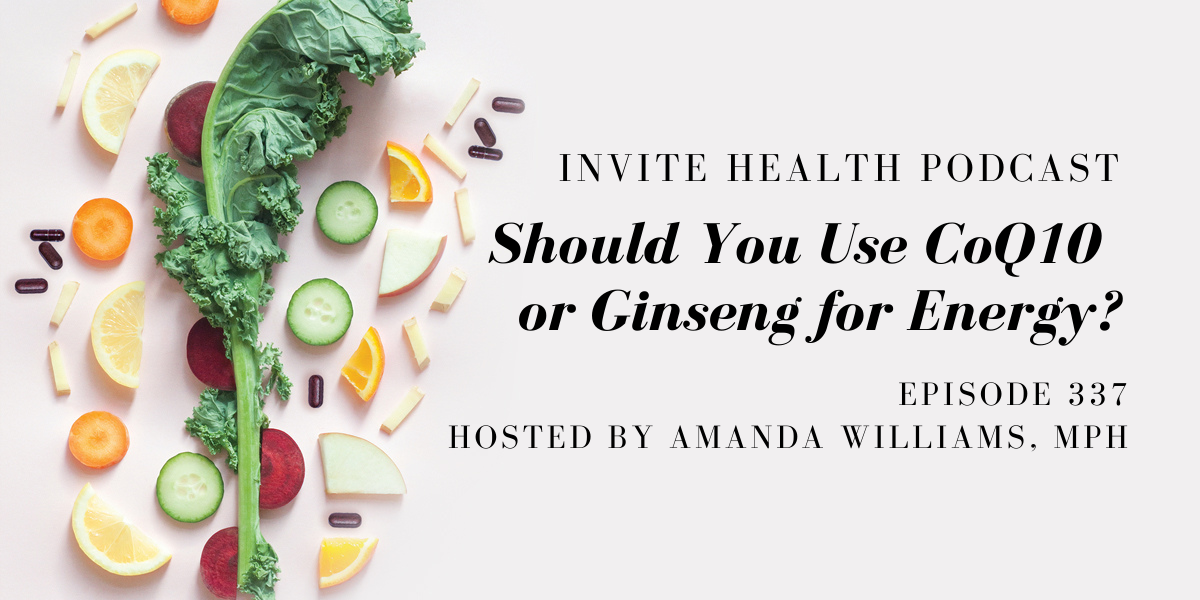antinutrients
Invite Health Podcast, Episode hosted by Jerry Hickey, Ph.
Subscribe Today!
Antinutrients are components in food which can block the absorption of important nutrients such as calcium, iron and other minerals. But they have health benefits and the truth of the matter is that, when you eat a healthy, balanced diet, they’re not an issue. You’d have to have very exaggerated amounts of these antinutrients for them to be a problem.†
Why can these be problematic?
Antinutrients can interfere with how your body absorbs nutrients. You typically absorb minerals through your stomach and intestines, but if there are antinutrients in those organs, they attach to the minerals and prevent you from absorbing them into your body. They mostly affect minerals like zinc, selenium, potassium, calcium and iron.†
SIGNS & SYMPTOMS OF AN IRON DEFICIENCY – INVITE HEALTH PODCAST, EPISODE 62. Listen Now>>
Sources of antinutrients
You can get antinutrients from consuming legumes, whole grains, black tea and cruciferous vegetables. Unless you have super high amounts of these nutrient-blocking components, they can actually be super healthy.†
One example is glucosinolates found in cruciferous vegetables such as broccoli, kale, bok choy and broccoli rabe. If you don’t cook these vegetables, there’s something in there that can slow down your thyroid, which can impact metabolism and energy. But, if you cook the vegetables and only have them four or five times a week, they don’t seem to affect the thyroid at all.†

The glucosinolates in these vegetables include sulforaphane, indole carbinols and glucuronic acid. While these components may be considered antinutrients, they also offer the body powerful support in defending itself from harmful foreign cells. Indole carbinols, for instance, stack up into diindolylmethane (DIM) within the intestines. DIM has been studied for its abilities to block the spread of certain viruses within the body.†
Another example is phytates. You find phytates in corn, rice, barley and whole wheat. Phytates help support immune system function and have been shown to have antioxidant activities that can help reduce chronic low-grade inflammation. This kind of inflammation can negatively impact the heart, kidneys, brain, circulatory system, skin and more.†
Tannins, which are found in black tea, coffee and grape seed, are another example of an antinutrient. Grape seed can help kill certain fungal and viral infections and can also help protect your heart and kidneys. But the tannins in black tea can be a bit of an issue because they can block the absorption of iron. You need iron for proper brain function, antioxidant protection, liver health, immune defenses and more. However, if you take some Vitamin C with the source of the tannins, the tannins won’t block the iron absorption.†
GRAPE SEED FOR HEALTHY CIRCULATION – INVITE HEALTH PODCAST, EPISODE 22. Listen Now>>
In this episode, Jerry Hickey, Ph. goes into depth about what antinutrients are and where they come from. He explains that while they may be known for blocking the absorption of certain nutrients, they can actually benefit the body in other ways.†
Key Topics:
- What are antinutrients and why are they released?
- Sources of nutrient-blocking components
- The pros of antinutrients
Thank you for tuning in to the Invite Health Podcast. You can find all of our episodes for free wherever you listen to podcasts or by visiting www.invitehealth.com/podcast. Make sure you subscribe and leave us a review! Follow us on Facebook, Twitter and Instagram at Invite Health today. We’ll see you next time on another episode of the Invite Health Podcast.


